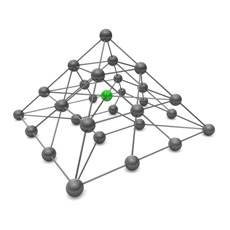Integrated Safety Response: Evaluation of years 2 & 3 released
Tue 29 Oct 2019
Two evaluations of the family violence Integrated Safety Response (ISR) were released in October.

Integrated Safety Response: Evaluation of years 2 & 3 released
Two evaluations of the family violence Integrated Safety Response (ISR) were released in October.
These are:
- Evaluation of the family violence Integrated Safety Response pilot : Phase II - years 2 & 3: Final report (Mossman, Wehipeihana and Bealing 2019)
- What's working for Māori : a Kaupapa Māori perspective on the responsiveness of the Integrated Safety Response to Māori. Synthesis evaluation report (Wehipeihana, 2019).
The ISR pilot was officially launched in Christchurch on 4 July 2016. A second pilot site, Waikato, came into operation on 25 October 2016. An evaluation of the first year of the pilot was published in August 2017. This new evaluation presents evaluation findings from the second and third year of the pilot. The evaluation was commissioned and overseen by Joint Venture Business Unit, on behalf of the ISR National Project Board.
The evaluation sought to address four questions:
- What are the distinct features of ISR, and what are the conditions required for it to work optimally?
- Is the ISR model effective?
- Does it represent a good return on investment?
- Have there been improvements since the last evaluation? What is now working well, and what improvements could still be made?
In order to understand the specific impact and responsiveness of ISR to Māori, a dedicated Kaupapa Māori evaluation project was carried out within the overall evaluation plan. The findings are incorporated into the main report, and a synthesis is published as a separate report.
The report notes that the primary aim of ISR is an immediate safety response or crisis response (i.e. ‘make safe’), with longer term safety and wellbeing work (or ‘keep safe’) considered an important and valid focus for the work of other agencies, after the ISR response has ended.
The evaluation finds that significant features of ISR include:
- "daily triage of all new episodes of family violence;
- whole-of-family and whānau approach that includes a focus on the perpetrator, whilst ensuring the safety of victims and children is paramount;
- government mandate and ring-fenced funding to deliver ISR, which has resulted in strong and enduring participation by government agencies;
- provision of a dedicated team of staff to oversee operations;
- funding of the community-based specialist positions to provide assertive outreach and intensive short-term safety work; and
- purpose-built electronic case management system that tracks tasks and enables information sharing."
The report states:
"For those delivering ISR services and responses, the evaluation found high levels of confidence in ISR’s ability to generate positive outcomes. Across all of those surveyed nine out of 10 indicated that the pilot was ‘effective’ or ‘very effective’. Providers of ISR services generally commented on improved processes, better resourcing, and improved workforce capability as key features of ISR. They observed that these achievements of ISR meant providers were better able to support families and whānau and keep them safe.
A further benefit, observed by multiple individuals from community and government agencies, was that ISR was also positively impacting on organisational practices, with improved knowledge and understanding of family violence generally extending beyond the personnel directly involved in delivery of ISR."
The evaluators state "Most of those interviewed felt there was a case for continued investment to maintain the scale of ISR and enable continued learning about the value of this integrated way of working. The model’s multiple elements and functions have been designed to work as an integrated package, such that an attempt to selectively implement some elements, while dispensing with others, was viewed likely to significantly ‘dilute’ the effectiveness of the ISR package."
As part of the evaluation, a total of 30 interviews were carried out with 38 family or whānau members who had received support through ISR (a combined total from the Kaupapa Māori evaluation and interviews from a 12-week case review). Other sources of data on outcomes for families and whānau included pre- and post-ISR self-report assessments; responses of those delivering ISR collected through the online survey; Police data on repeat reports of family violence; and observations by the support agencies working with the families and whānau.
The evaluators note "many families and whānau were not aware of what constitutes an ‘ISR response’, as a result of which their views and perceptions tended to reflect their experiences of the services they received as a result of ISR."
The evaluators note that at this stage it is too early to accurately assess the degree to which ISR’s short-term safety responses translates to a reduction in actual family violence behaviour. Nevertheless, they found some indication of reduced rates of family violence behaviour following ISR.
Areas where modifications to the ISR model offer the "potential for greater gains" were identified as including the following:
- improved implementation of ISR in rural areas – the key challenge is how to modify the model to enable efficient referral processes, and optimal use of both local and centralised knowledge and relationships, but without duplicating efforts and resources;
- improved responses for children and youth – reflecting on the appropriate role and capacity of ISR to respond to children at risk of longer-term adverse outcomes as a consequence of being exposed to family violence; and
- greater efficiencies in managing the increasing volumes of referrals– whilst there have been significant increases in funding since the first evaluation, renewed pressure on resources is emerging as volumes of referrals continue to increase with more people now reporting family violence to police.
Other areas for improvements include: "improved communication to keep everyone updated on ongoing ISR developments; consideration of opportunities for how the families and whānau engaged with agencies not affiliated with ISR can be better supported through ISR; and development of IT-based solutions that would improve specific functions and reduce workload pressures."
In conclusion, the authors note:
“As a crisis response, ISR can only ever be one part of the wider response system that is needed to tackle family violence. It is now time for the whole-of-government to work together with the community, to develop and resource other parts of the full response system so families and whānau affected by family violence can access a seamless system of support.”
Responsiveness to Māori
The aims of the Kaupapa Māori project carried out as part of the evaluation were to assess the responsiveness of the ISR model to Māori, and assess how well whānau-centred approaches are integrated within ISR.
The synthesis report by Nan Wehipeihana states:
"ISR is highly responsive to whānau. Whānau interviewed in both Christchurch and Waikato, deeply appreciated the support they received from ISR Kaupapa Māori partners. Whānau describe the services as being delivered with respect and in a tikanga way, through the use of karakia and the presence of wairua for example. Whānau also felt connected to te ao Māori. They could express themselves and their identity and they felt safe. Whānau draw strength and confidence from the tikanga embedded in Kaupapa Māori approaches and the culturally safe environments created.
While most whānau had little or no awareness of ISR, they had been connected to Kaupapa Māori partners through ISR. Kaupapa Māori providers partner with ISR to provide effective support to whānau."
In terms of providers, the evaluation found:
"ISR is now more responsive to its Kaupapa Māori partners. ISR Kaupapa Māori partners spoke of a significant turnaround from the first year of the ISR pilot. They now feel listened to, their expertise valued, and that ISR supports their ways of working and whānau-centred practice. ISR Kaupapa Māori partners and their kaimahi feel strongly that ISR enables them to better support their whānau."
The report states, "Overall, there is ‘good’evidence that ISR is responsive to Māori, when assessed against the Whānau-Centred Delivery Model" as illustrated in the following dashboard:
 In terms of going forward, the report states:
In terms of going forward, the report states:
"Whilst the overall picture at this stage is a positive one, there are areas for improvement. These include to:
- work with government partner agencies to support them to understand and adopt whānau-centred practice to improve their responsiveness to whānau and to align with ISR;
- review workforce capacity and coalition funding allocations to ensure support and services are adequately resourced;
- strengthen relationships across the sector to manage service gaps, facilitate access and to advocate for more funding of non-ISR programmes and services;
- vest decision-making about the collation and reporting of ISR whānau outcomes in Māori to support a Kaupapa Māori analytic lens, the consideration of outcomes; and to minimise the misuse or misrepresentation of Māori and whānau data;
- clarify for (all those involved) the ISR governance, ISR government agencies and the ISR core team in Christchurch, ‘Tū Pono’ the Whānau Ora approach to family violence developed across Te Waipounamu, and ‘Tū Pono’ the (ISR) Coalition and how they relate;
- explore the potential role, relationship or contribution of Te Pūtahitanga (Whānau Ora Commissioning) to ISR Christchurch. There is a need for ISR and Whānau Ora to be better connected and more joined-up to ensure seamless support for whānau; and
- increase reporting (and research if needed) about tamariki and rangatahi experiences of ISR to address the lack of visibility about how well ISR is working for children and young people."
Related news
Budget 2019 included a Building Safe, Consistent and Effective Responses to Family Violence in Every Community initiative, for "taking existing models forward and evolving them into a nationally consistent approach. In particular, this initiative will extend the Integrated Safety Response (ISR) sites (in Christchurch and Waikato) for two more years, includes funding for specialist family violence services, extends the Whāngaia Ngā Pā Harakeke sites in Counties Manukau and Gisborne and Whiria Te Muka sites in Kaitaia for two more years; pilots proximity alarms to help keep victims and whānau safe; and develops national case management systems to support triage, risk assessment and management processes."
Related media
Initiative to stem violence ‘crisis’, Otago Daily Times, 26.11.2019
Image: Free Photos on Pixabay







